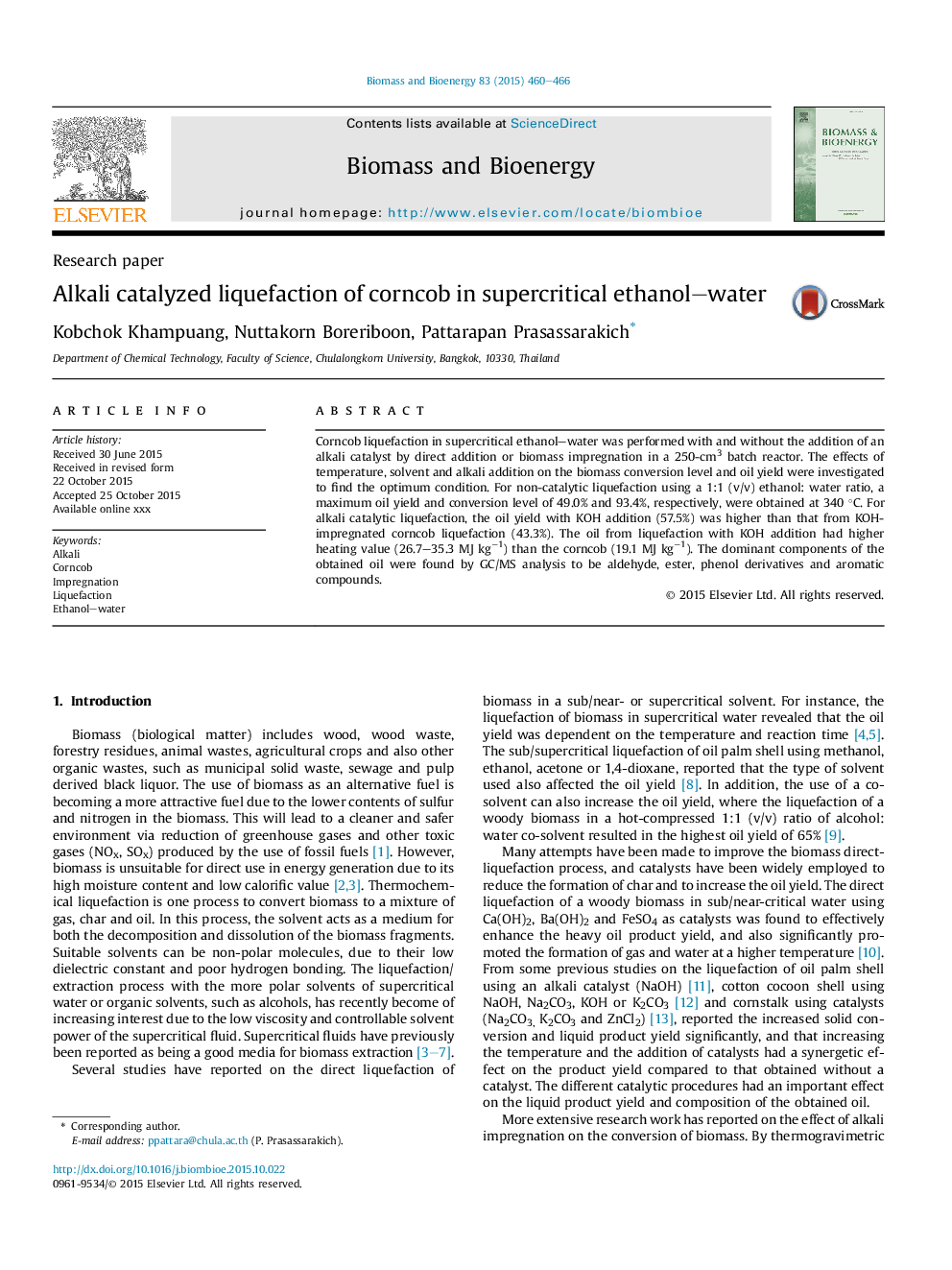| Article ID | Journal | Published Year | Pages | File Type |
|---|---|---|---|---|
| 7063720 | Biomass and Bioenergy | 2015 | 7 Pages |
Abstract
Corncob liquefaction in supercritical ethanol-water was performed with and without the addition of an alkali catalyst by direct addition or biomass impregnation in a 250-cm3 batch reactor. The effects of temperature, solvent and alkali addition on the biomass conversion level and oil yield were investigated to find the optimum condition. For non-catalytic liquefaction using a 1:1 (v/v) ethanol: water ratio, a maximum oil yield and conversion level of 49.0% and 93.4%, respectively, were obtained at 340 °C. For alkali catalytic liquefaction, the oil yield with KOH addition (57.5%) was higher than that from KOH-impregnated corncob liquefaction (43.3%). The oil from liquefaction with KOH addition had higher heating value (26.7-35.3 MJ kgâ1) than the corncob (19.1 MJ kgâ1). The dominant components of the obtained oil were found by GC/MS analysis to be aldehyde, ester, phenol derivatives and aromatic compounds.
Related Topics
Physical Sciences and Engineering
Chemical Engineering
Process Chemistry and Technology
Authors
Kobchok Khampuang, Nuttakorn Boreriboon, Pattarapan Prasassarakich,
